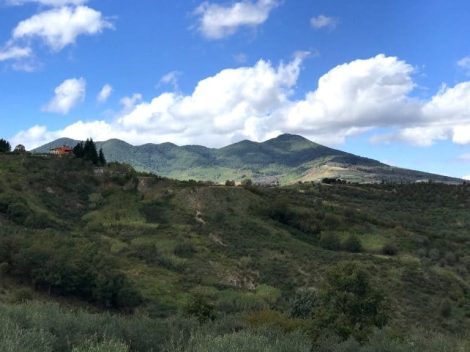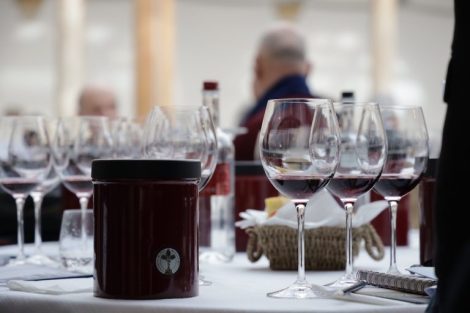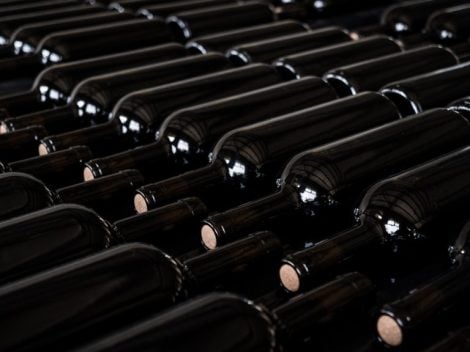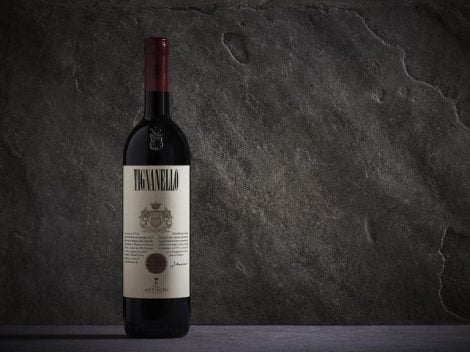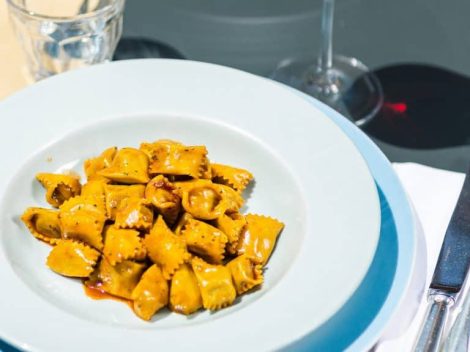When thinking of this country, many similitudes come to mind in regards to other Mediterranean countries, especially western European countries. Food, cultivations and cultures have intertwined for millennia and the olive tree has surely played a starring role in this evolution. Nowadays olive crops cover approximately 60% of cultivated surfaces in Greece. Much has obviously changed since Zeus bestowed Athena Poseidon’s horse, but Greece’s cultural bond with this scared tree has remained visceral and unchanged.
Similarly to Italy, olive oil production in Greece is multifaceted, with areas of extreme productivity (the Peloponnese and Crete alone make up 2/3 of the national output) and others with smaller, more unique clusters. In recent years the latter have been focusing on quality. In actual fact, in the last decades Greece has learned a lot about quality. The last generation has swerved away from big yields and tank sales, in favour of bottling. This method better communicates the value of a product, which is garnering an ever-growing public of passionate, discerning admirers.
SOME FIGURES
The current olive oil production in Greece fluctuates between 190-320 thousand tonnes per year. These are divided by approximately 600 thousand producers, with similarity to Italy’s fractioned structure rather than to Spain’s. In the entire country are over 2000 olive mills, and 19 Dop and 11 Igp local certifications. The 2016/2017 harvest was a meagre one, with a 35% dip from the previous year, but the upcoming one is forecast to increase by 65%, and even out the usual numbers.
TASTING NOTES
We reported tasting 6 different extra virgin olive oils made by 4 different producers. Even before tasting the oils we admired the craftsmanship of their bottles. The care given to packaging and labelling is admirable, and Greeks are doing an excellent job in this field. The oils tasted hail from diverse areas, such as Messenia, Crete, Athens and the Chalcidice peninsula; which allow us to cover a vast variety. These are farms that are well inserted in the high-end extra virgin olive oil market, and winners in a number of international competitions.
LIÀ – Premium Edition Monocultivar Koroneiki
Cristina Stribacu and her brother now run the family business founded by their grandfather and later consolidated by their parents. The farm grows 2,500 Koroneiki trees, a local variety. As a professional olive oil connoisseur and taster, Cristina immediately grasped the guidelines for running the small yet exclusive business: focusing on quality and attractive design. Their olives are picked unripe and ground with a bi-phase Alfa Laval press, lending particular attention to temperature control.
The oil we tasted here was the Premium Edition, a single origin Koroneiki of medium fruitiness. The aromas are herbaceous and aromatic, with light spicy notes and a delicate unripe banana accent. On the palate it is well balanced between bitter and spicy and confirms the sharp vegetal notes.
Terra Creta – 42 Premium Blend
This young producer since 2001 is the brainchild of two olive oil production and sales experts. The company, which launched with immediate growth prospects and a long-term vision, already in 2007 was expanding square footage of both production site and cultivated cropland. The production is entirely certified organic both in product and press. In the course of only a few years, the product has won several awards, thus increasing presence on the international market.
The 42 Premium Blend is this year’s experiment and owes its name to the number of olive varieties present in the bottle. Yes, you read correctly, this is a blend of 42 olive varieties present in the farm’s groves, each with a minimum of 70 trees per type. These span Greek cultivar as well as varieties indigenous to the rest of the world. The aromatic package the oil carries is medium fruity with a vegetal profile reminiscent of mature tomatoes, artichoke, delicate radicchio and yellow apple. On the palate it is in tune with the aromas and possesses a fine bitter note, surpassing the otherwise intense spiciness.
YANNI'S OLIVE GROVE – Monocultivar Chondroelia Chalkidiki | Monocultivar Galani Chalkidiki
Yannis Prodromou manages and coordinates the work of the Potidaea production, which is a Chalcidice peninsula landmark. Manic attention to the entire production phase has brought this business to active participation in numerous smart farming projects funded by the EU. The brand is focused on studying the different Greek olive varieties’ potential. This obstinacy and passion are present in the groves, in the olive press all the way to the beautifully designed bottles.
The Monocultivar Chondroelia Chalkidiki is a medium fruit-forward olive oil that lends almond notes, as well as thistle, valerian and musk aromas. On the palate this latter nuance is recurring, completed by the taste of pine nut and vegetal nuances. Mildly bitter and spicy with a slight prevalence in the latter.
The Monocultivar Galani Chalkidiki on the other hand is much more delicate. The light fruity note is impeccable boasts a complex aromatic tissue made of small traces of almond, pine nut and subtle citrus nuances reminiscent of mandarin orange. On the palate the oil is extremely elegant and confirms the aromas. Mildly bitter and spicy with a slight prevalence in the latter.
LADOLEA – Monocultivar Megaritiki | Monocultivar Patrinia Bio
Melissi&Co, the company owned by brothers Panos and Thanos Kloutsiniotis, respectively chemical engineer and economist, is one of Corinthia’s most significant businesses. Ladolea was in fact developed to become an ambassador of the area’s most typical product, extra virgin olive oil. Thanks to the passion and experience of the two brothers, the farm currently produces high quality oils that are sold in unique bottles inspired by 700 B.C. amphorae called Aryballos, which contained olive oil, used by Olympian athletes on their bodies before the competitions.
The Monocultivar Megaritiki is a medium intensity whose nose betrays a prevalence of mature tomato and vegetal aromas. On the palate these mature tones remain but played on fruit. In July the oil is rather sweet with well-balanced bitterness and spiciness.
The Monocultivar Patrinia Bio on the other hand is more delicately fruity. Floral and pine nut aromas emerge, while on the palate it is slightly more vegetal, with notes of radish. This delicate oil is the perfect match on seafood dishes.
by Indra Galbo
translated by Eleonora Baldwin
Lià
Navarinou 18 Filiatra-Messinia
tel. 0030 6932940883
www.liaoliveoil.com | [email protected]
Terra Creta
Kolymvari Chania 73006, Crete
tel. 0030 2824083340-41
www.erracreta.gr | [email protected]
Yanni's Olive Grove
Nea Poteidaia Chalkidiki
Τel: 0030 23730-43124
www.yannisolivegrove.gr | [email protected]
Melissi & Co.
1 Kritis Street, Neo Psychiko, Athens, Greece, 154 51
tel. 0030 2106777570
www.ladolea.gr | [email protected]

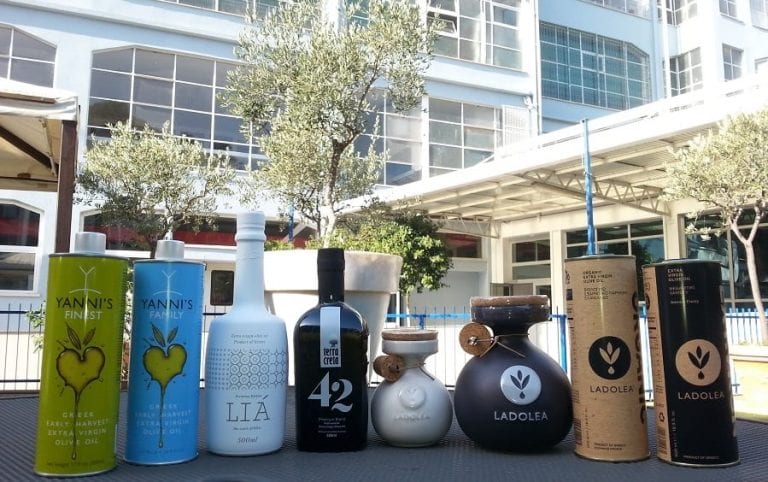

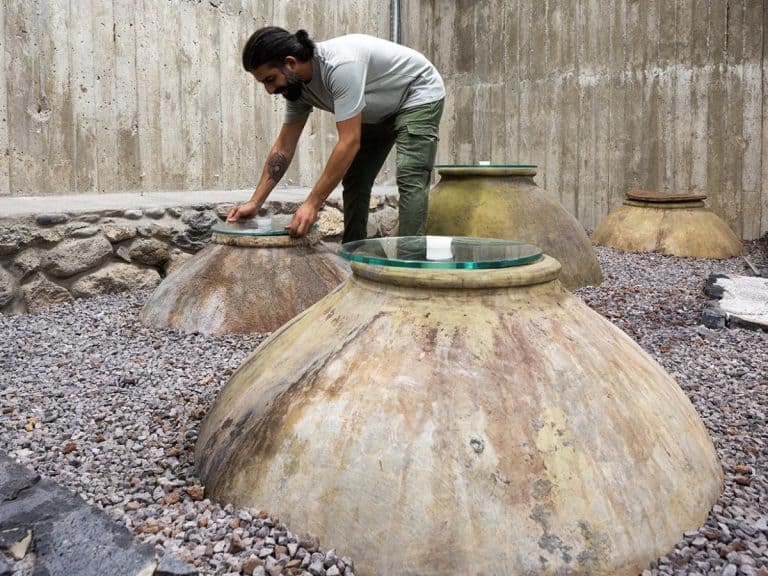 The awakening of Armenian wine: a revolution rooted in history and geopolitics
The awakening of Armenian wine: a revolution rooted in history and geopolitics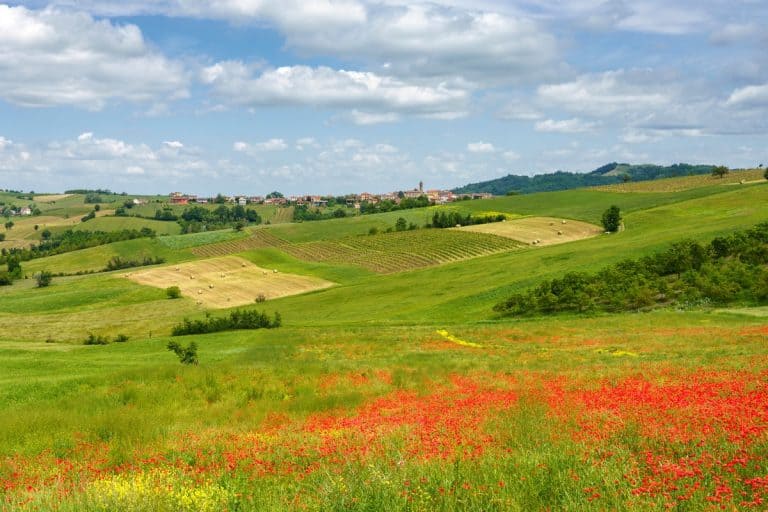 Timorasso: the red wine dressed as white from the Colli Tortonesi. Here are the 16 best labels
Timorasso: the red wine dressed as white from the Colli Tortonesi. Here are the 16 best labels It’s official: China joins the International Organisation of Vine and Wine
It’s official: China joins the International Organisation of Vine and Wine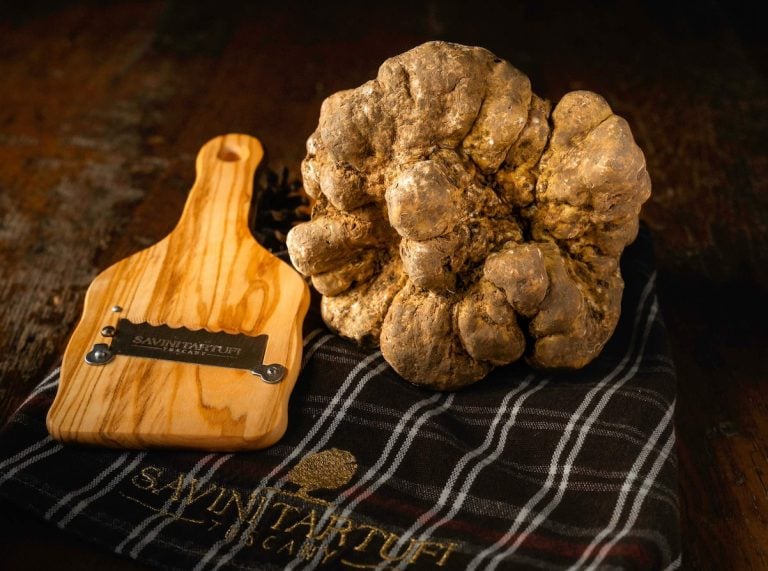 How and where to buy white truffle from Alba at a fair price: tips from an expert
How and where to buy white truffle from Alba at a fair price: tips from an expert The Italian wines with the best value for money: here are the National awards from Berebene 2025 guide
The Italian wines with the best value for money: here are the National awards from Berebene 2025 guide